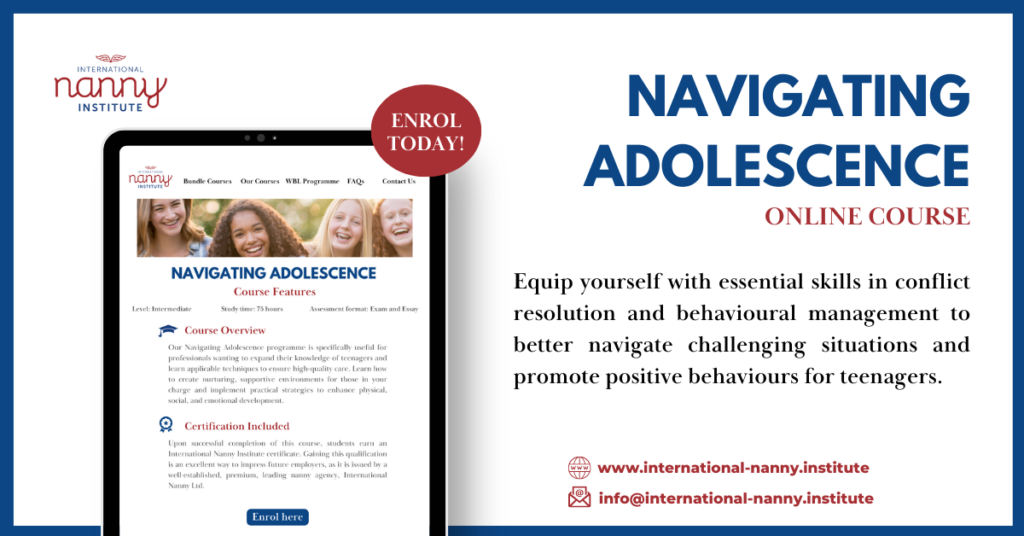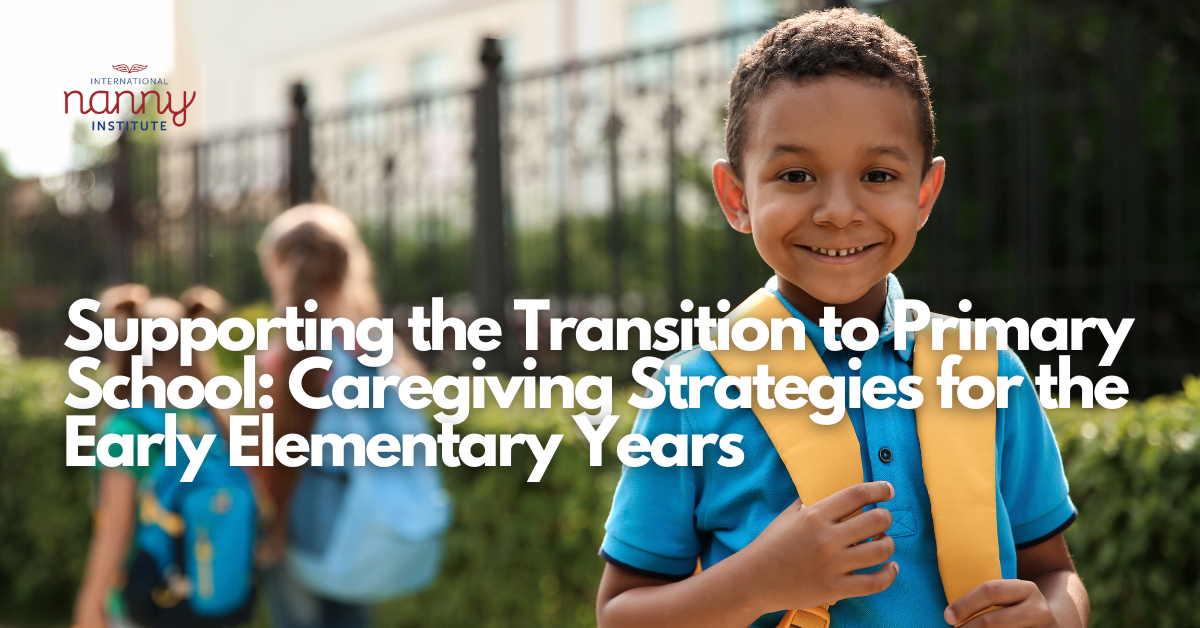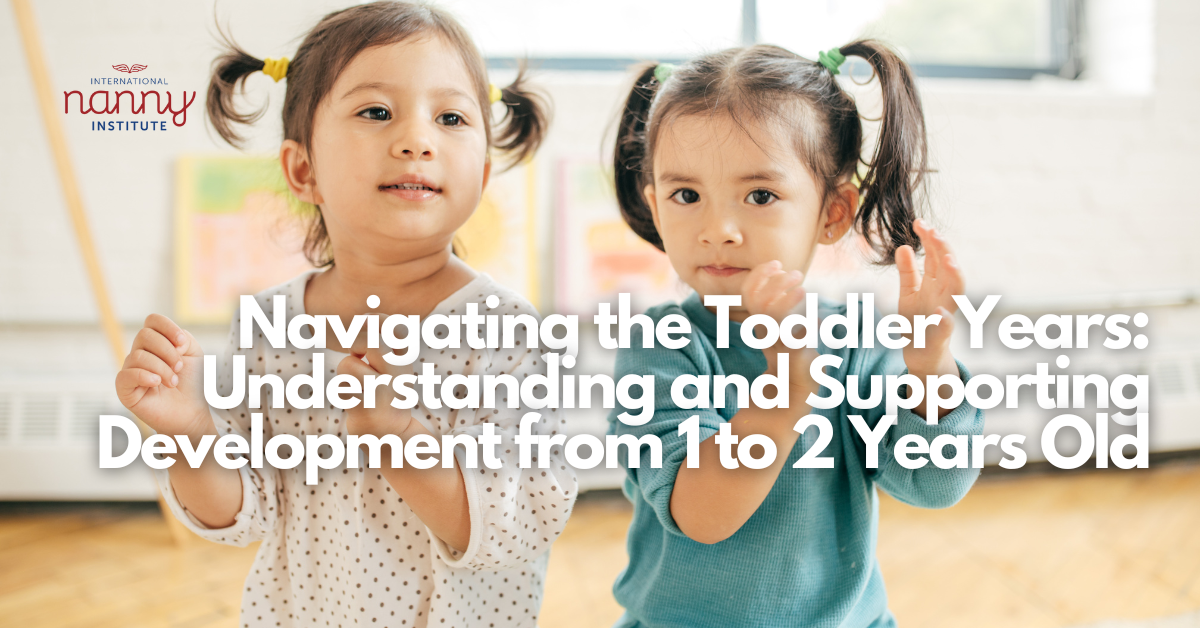Navigating Social Media and Technology with Adolescents
The teenage years are a time of rapid social, emotional, and cognitive development – and the increasing prevalence of social media and technology has only amplified the complexity of this transitional stage. Nannies have a unique opportunity to help the adolescents in our care navigate this digital landscape in a healthy, balanced way.

Today’s teens are the first generation to grow up entirely in the internet age. They have never known a world without constant connectivity, social media, and a wealth of information (and misinformation) at their fingertips. While technology provides valuable avenues for learning, self-expression, and social connection, it also presents a host of challenges that can profoundly impact adolescent well-being.
The Unique Challenges of the Digital World
Social media and technology can exacerbate many of the developmental struggles already inherent to the teenage years. Here are some of the key concerns we may encounter as nannies:
Anxiety and Depression
Constant exposure to idealised, curated online personas can fuel feelings of low self-worth, envy, and isolation in adolescents. The fear of missing out (FOMO) and pressure to present a perfect image online can also contribute to mental health issues. Studies have shown a strong correlation between heavy social media use and increased risk of depression, anxiety, and poor sleep.
Cyberbullying
Teens may face cruel comments, harassment, and social exclusion through digital platforms, with the potential for humiliation and trauma. The 24/7 nature of online interactions makes it difficult for them to ever truly “log off,” compounding the emotional distress. Cyberbullying has been linked to a range of negative outcomes, including low self-esteem, academic difficulties, and even suicidal ideation.

Distraction and Addiction
The dopamine-fueled feedback loops of social media and digital entertainment can hijack the adolescent brain’s still-developing impulse control, leading to problematic use and diminished productivity. Teens may struggle to focus on schoolwork, chores, or face-to-face interactions due to constant phone and app notifications vying for their attention.
Misinformation and Risky Behaviour
Teens are particularly vulnerable to the spread of falsehoods, conspiracy theories, and dangerous viral challenges online. This can put their physical and emotional well-being at risk, as they may be inclined to engage in reckless behaviour or believe unreliable health information.
Privacy and Safety
Oversharing personal information, engaging with strangers, and being tracked by digital devices all pose significant safety concerns for adolescents navigating the online world. Teens may not fully grasp the long-term implications of their digital footprint or the potential for exploitation by predators.

Embracing the Opportunities
While the challenges are real, technology and social media also present unique opportunities for the teens in our care, we can help them leverage these tools in positive ways:
Self-Expression and Creativity
Platforms like Instagram, YouTube, and TikTok allow adolescents to experiment with different aspects of their identity and share their talents with the world. This can be a valuable avenue for self-exploration and building creative confidence.
Expanded Social Connections
Social media can help teens maintain long-distance friendships, find like-minded communities, and explore new interests – all crucial for identity development. Online interactions can complement and enhance their offline social lives.

Access to Information and Learning
The wealth of educational content, online courses, and digital resources available empowers adolescents to pursue their curiosities and gain new skills. Teens can leverage technology to augment their academic studies, discover hobbies, and develop new competencies.
Civic Engagement
Teens can use social media to raise awareness, advocate for important causes, and organise collective action around issues they care about. This can foster a sense of purpose, empowerment, and social responsibility.
Strategies for Nannies
So how can we help the adolescents in our care develop a healthy, balanced relationship with technology and social media? Here are some key strategies:
Lead by Example
Be mindful of our own screen time and digital habits, modelling healthy boundaries and tech-free activities. Adolescents are highly attuned to the behaviours and values of the important adults in their lives.

Educate and Empower
Help teens understand the potential risks and benefits of technology. Teach them essential digital literacy skills, like spotting misinformation, protecting their online privacy, and managing their digital footprint.
Establish Clear Expectations
Work with families to set guidelines around device usage, social media access, and appropriate online behaviour. Consistently enforce these rules and adjust them as needed, while also allowing for flexibility and open dialogue.
Encourage Offline Pursuits
Regularly incorporate tech-free activities into the teen’s routine, such as reading, exercising, playing games, or spending quality time together. This helps maintain balance and ensures they are nurturing their in-person relationships and hobbies.

Foster Mindfulness
Teach adolescents strategies for monitoring their emotional state and motivations when using digital platforms. Help them develop self-awareness around problematic patterns, like compulsive scrolling or emotional reactivity to posts.
Facilitate Open Dialogue
Create a safe space for teens to openly share their experiences, concerns, and questions about the online world. Listen without judgement and offer guidance, while also acknowledging the complexities and challenges they face.
Collaborate with Families
Partner closely with parents to ensure a unified, consistent approach. Share resources, coordinate rules, and stay in close communication to support the teen’s holistic well-being.

Teenagers face unique challenges as they navigate the complex path to adulthood. By supporting adolescents in developing a healthy, balanced relationship with technology, we can empower them to harness its vast potential while mitigating the risks. This is a crucial step in preparing them to navigate the digital landscape as thriving, well-adjusted young adults.
Professional caregivers have a profound opportunity to guide them through this pivotal transition. The International Nanny Institute’s “Navigating Adolescence” course will give you the advanced training to do just that. Discover research-backed strategies for fostering independence, emotional intelligence, and overall well being in your adolescent clients. Not only will this knowledge transform the lives of the teens you work with, but it will also elevate your standing as a sought-after nanny – opening doors to new job opportunities and higher earning potential.









